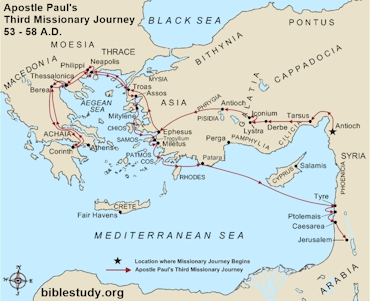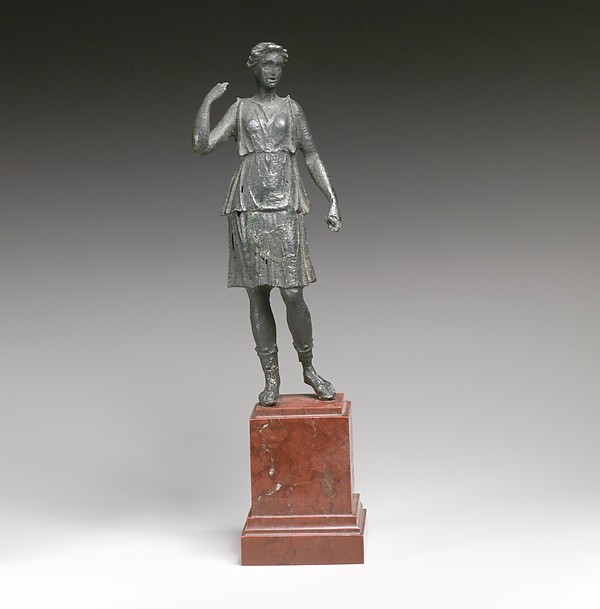
It didn’t work . . .
“When the seven days were almost completed, the Jews from Asia, who had seen him in the temple, stirred up the whole crowd. They seized him, shouting, ‘Fellow Israelites, help! This is the man who is teaching everyone everywhere against our people, our law, and this place; more than that, he has actually brought Greeks into the temple and has defiled this holy place.’ For they had previously seen Trophimus the Ephesian with him in the city, and they supposed that Paul had brought him into the temple” (Acts 21:27-29).
Purification rite day seven. End in sight. Suddenly, behind him, Paul hears shouting in the temple. “Men of Israel! Help! This is the man who teaches against our people and tells everybody to disobey the Jewish laws. He speaks against the Temple — and he even defiles it by bringing Gentiles in!” Paul turned to reply. But they were on him before he could speak. He tried to pull away, but the angry crowd was growing. Nowhere to go.
Even as he was attacked, Paul understood. Earlier, they’d seen Trophimus the Gentile Ephesian with him and assumed Paul had brought him into the inner Court of Israel. Death to the man who allows Gentiles into Israel’s court. Jewish purity must be upheld. Their survival as a people depended on it.
“Then all the city was aroused, and the people rushed together. They seized Paul and dragged him out of the temple, and immediately the doors were shut” (Acts 21:30).
News spreads like wildfire across the city. More Jews join the fray. Paul tries to argue back; but the crowd’s noise has become a roar. Blows to his rib cage knock the breath from him. He loses his footing. They grab his clothes and drag him out of the temple. Behind him he vaguely hears the temple doors slam shut. He’s dragged further, pummeled more. A warning thought crosses his mind: they can legally kill him for these charges. He’s helpless. The mob surges like a violent river at flood stage, drowning him in its madness.
“While they were trying to kill him, word came to the tribune of the cohort that all Jerusalem was in an uproar. Immediately he took soldiers and centurions and ran down to them. When they saw the tribune and the soldiers, they stopped beating Paul. Then the tribune came, arrested him, and ordered him to be bound with two chains; he inquired who he was and what he had done. Some in the crowd shouted one thing, some another; and as he could not learn the facts because of the uproar, he ordered him to be brought into the barracks. When Paul came to the steps, the violence of the mob was so great that he had to be carried by the soldiers. The crowd that followed kept shouting, ‘Away with him!’” (Acts 21:31-36).
Next to the temple stood the Antonia fortress, headquarters of the Roman garrison in Jerusalem. The Roman tribune, charged with keeping peace, receives word: the whole city is in chaos. Quickly, he calls his soldiers and centurions. They follow him, running to the temple. Suddenly, Paul feels the mob back off. He hears what must be the Roman tribune arrest him, chain him. “Who is this man?” he demands. “And what has he done?” This sets the crowd shouting–a rush of senseless-sounding charges. Paul hears the tribune groan, exasperated. Relief and anxiety fill him as he hears the tribune order his men to carry Paul into the fortress. Breathless and bruised, he welcomes the rescue. The voices of the crowd ring in his ears: “Away with him!”
“Then as Paul was about to be led into the barracks, he said to the commander, ‘May I speak to you?’ He replied, ‘Can you speak Greek? ‘Are you not the Egyptian who some time ago stirred up a rebellion and led the four thousand assassins out into the wilderness?’ But Paul said, ‘I am a Jew from Tarsus, in Cilicia, a citizen of no mean city; and I implore you, permit me to speak to the people.’ So when he had given him permission, Paul stood on the stairs and motioned with his hand to the people. And when there was a great silence, he spoke to them in the Hebrew language, saying . . . “ (Acts 21:37-40).
At the top of the fortress’ stairs, just as Paul is to be dragged inside, he asks to speak to the commander. The tribune supposes Paul an Egyptian, who three years earlier had appeared as a prophet in Jerusalem. He had attracted a large band of followers to the Mount of Olives, told them to wait until at his command the city walls would fall, and they should then overtake the Roman garrison and control of the city. But Procurator Felix sent troops who killed some, took others prisoner, and dispersed the rest.
Paul, still panting from the attack, explains, “I’m a Jew, a citizen of the prominent city of Tarsus. Please let me speak to the people.”
The tribune relents. Paul gathers his breath, stands at the stairway top and motions with his hand to quiet the crowd. When they’re silent, he begins, in Hebrew.
* * *
Paul will spend the next three-plus years in prison awaiting trials and will ultimately be shipped to Rome to stand trial before Caesar.
Why does God allow this?
In Lamentations, Jews are grieving over their exile from Jerusalem. Pagan armies have destroyed the city and ravished the temple. Through it all,they affirm God’s sovereignty . . .
“Is it not from the mouth of the Most High that both calamities and good things come?” (Lamentations 3:38).
God didn’t only allow Jerusalem’s destruction, he sent it. God didn’t only allow Paul’s arrest, he sent it.
We can’t blame James for bad advice, or Paul for taking it in a futile attempt to appease hostile Jews. ” . . . both calamities and good things” come from the Most High.
But, why this calamity? Almost five years later, from Roman house arrest, Paul will explain in writing to the Philippian church . . .
“Now I want you to know, brothers, that what has happened to me has really served to advance the gospel. As a result, it has become clear throughout the whole palace guard and to everyone else that I am in chains for Christ. Because of my chains, most of the brothers in the Lord have been encouraged to speak the word of God more courageously and fearlessly” (Philippians 1:12-14).
God wanted Paul in Rome. God wanted Caesar’s elite troops in Rome to hear about Christ. God wanted the gospel to reach into Caesar’s very household. God wanted the brothers there to be encouraged to speak God’s word more courageously and fearlessly. So he had James advise the purification rite and Paul to agree. He had Paul arrested in the temple. He had Paul imprisoned, tried and finally shipped as a prisoner to Rome.
Paul planned to go to Rome after Jerusalem. God planned for Paul to go. God’s way won.
“In his heart a man plans his course, but the LORD determines his steps” (Proverbs 16:9).
In this case, the Lord answered our “why?” question. He doesn’t always. Sometimes the Host High sends calamities without explanation, and gives no reason. What then?
Read Paul.
And believe the Most High.
Paul’s calamity gives us ammunition for the fight of faith in our calamity.




Recent Comments